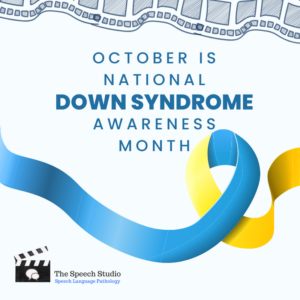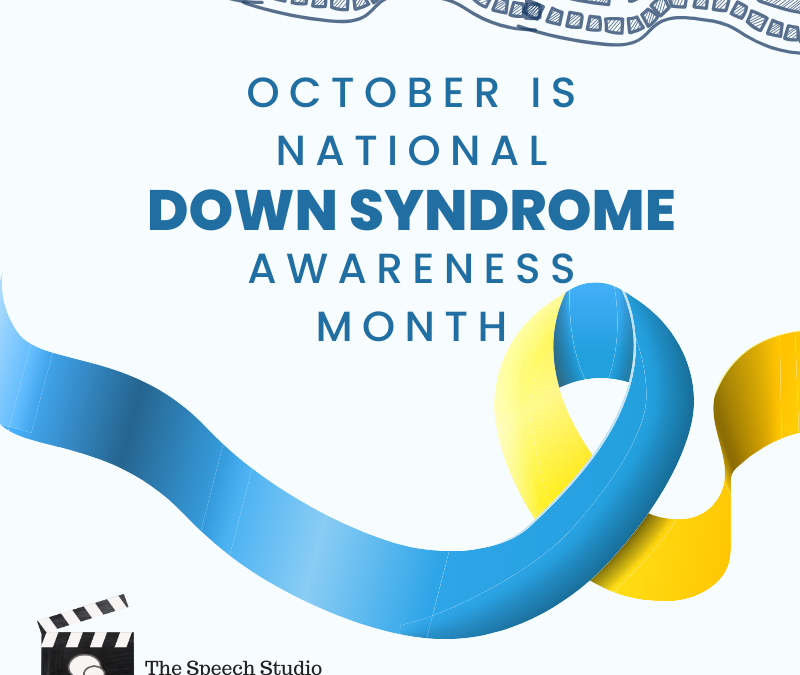October is Down Syndrome Awareness Month: A Speech Therapist’s Perspective
As a speech therapist, October is an important time to recognize Down Syndrome Awareness Month. This month serves as a reminder to spread awareness and educate the public about Down syndrome (also known as Trisomy 21) and how early intervention—especially speech therapy—can make a big difference in the lives of individuals with this condition.
What is Down Syndrome?
Down syndrome occurs when there’s an extra copy of chromosome 21. This extra genetic material affects development, often leading to challenges with speech and language skills, as well as oral motor coordination. Children with Down syndrome may experience speech delays, difficulty with clear articulation, and sometimes use Augmentative and Alternative Communication (AAC) tools to assist with communication.
Why Awareness is Crucial
For children with Down syndrome, early intervention through speech therapy is vital. During Down Syndrome Awareness Month, we emphasize the importance of understanding the specific needs of these individuals and how supporting their speech and language development can help them communicate more effectively. Early therapy helps with speech clarity, language comprehension, and social interaction.
How Speech Therapists Help Individuals with Down Syndrome
As speech therapists, we use a variety of techniques to support children with Down syndrome:
- Early Intervention: Starting speech therapy as soon as possible helps create a foundation for language development.
- Oral Motor Exercises: These exercises strengthen the muscles needed for speaking, eating, and swallowing.
- Augmentative and Alternative Communication (AAC): AAC devices and tools can assist children in expressing themselves when speech is difficult.
- Family Engagement: It’s essential to involve families in the therapeutic process, ensuring that children practice their skills in everyday settings.
How You Can Get Involved
- Raise Awareness: Share information about Down Syndrome Awareness Month to help others understand the condition and reduce stigma.
- Encourage Inclusion: Advocate for inclusive practices in schools and workplaces so individuals with Down syndrome can fully participate in their communities.
- Support Access to Therapy: Ensure children with Down syndrome have access to necessary therapies, including speech and language support.
Helpful Resources
For those looking to learn more about Down syndrome or find support, here are some excellent resources:
- National Down Syndrome Society (NDSS)
www.ndss.org
NDSS is a key organization advocating for individuals with Down syndrome, offering resources on healthcare, education, and inclusion. - Down Syndrome Diagnosis Network (DSDN)
www.dsdiagnosisnetwork.org
DSDN provides support for families who have received a new Down syndrome diagnosis, offering guidance and community connections. - Global Down Syndrome Foundation
www.globaldownsyndrome.org
This foundation focuses on research, medical care, and advocacy to improve the lives of individuals with Down syndrome, promoting inclusion and optimal development.
This October, let’s continue to raise awareness and ensure that individuals with Down syndrome have access to the services and support they need to thrive. As a speech therapist, I see the profound impact that early intervention and continued therapy can have on improving speech and communication skills. Let’s celebrate their successes and work toward a more inclusive future!

October is National Down Syndrome Awareness Month


